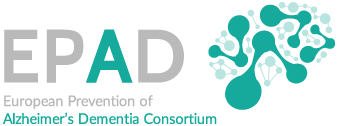Blogs & News
Aridhia’s Role in Enabling New Alzheimer’s Research
A new paper published in Frontiers by an Australian/European team working within the Alzheimer’s Disease Data Initiative (AD Data Initiative) AD Workbench platform lends more weight to the idea that modifiable risk factors (e.g. education, exercise, etc.) are significantly associated with higher AT(N) biomarker burden, providing many possible routes to Alzheimer’s disease risk reduction.
This is one of many studies that have so far taken advantage of data from the European Prevention of Alzheimer’s Dementia Consortium (EPAD) Longitudinal Cohort Study (LCS). The aim of the consortium was to discover ways to identify and treat people before clinical symptoms of Alzheimer’s dementia appeared. Aridhia began working with the EPAD team back at the beginning of 2016, providing the trusted research environment framework needed for supporting both the LCS, and the subsequent proof-of-concept adaptive trials. This collaborative working environment supported what was the largest ever public-private partnership in Alzheimer’s disease research, involving 39 partner organisations across multiple domains.
EPAD Data Release
The data engineering team at Aridhia helped facilitate each of the EPAD dataset releases. Data from over 30 study sites across Europe was collected continuously in IQVIA’s Medidata Rave EDC platform. This was packaged and sent monthly, combined along with imaging (IXICO) and sample data (EPAD Biobank) in Aridhia’s Analytical Database. From here, the team at Aridhia cleaned and harmonised the data into a researcher-friendly format in order to create the final analytical datasets and make them available to researchers around the globe.
 Aridhia also worked closely with the team at the University of Edinburgh in the development and delivery of the EPAD Research Access Process (ERAP): a semi-automated request and distribution pipeline for data access that dealt with review and approvals, and incorporated a metadata catalogue and library to help researchers interpret the hosted data. The process was expanded to include image and sample access as well. The ERAP was praised by the project co-ordinator Craig Ritchie for the incredible speed of access: taking typically less than one working day to go from access request to users being invited to a newly provisioned workspace containing the appropriate cohort data.
Aridhia also worked closely with the team at the University of Edinburgh in the development and delivery of the EPAD Research Access Process (ERAP): a semi-automated request and distribution pipeline for data access that dealt with review and approvals, and incorporated a metadata catalogue and library to help researchers interpret the hosted data. The process was expanded to include image and sample access as well. The ERAP was praised by the project co-ordinator Craig Ritchie for the incredible speed of access: taking typically less than one working day to go from access request to users being invited to a newly provisioned workspace containing the appropriate cohort data.
EPAD became the first project to add their entire research dataset to the AD Workbench, before following this up with additional genomic data from the LCS. The ERAP has now been superseded by the new data access request process at the AD Workbench.
AD Workbench
Aridhia provides the foundation of the AD Workbench, a global platform enabling access to a variety of interoperable datasets through federated data sharing, as well as analytical workspaces. It is guided by three principles: increased data sharing, easing data access, and developing new tools and analytics for researchers to use and share. The NeuroToolKit (NTK) developed by Roche and its partners is a suite of curation and analysis applications that Aridhia integrated into the Workbench as containerised applications; now available to all users of the Workbench.
After years of work, it’s fantastic to see this data not only finding a home among researchers at the AD Data Initiative, but also being utilised to great effect in the fight against dementia.
May 13, 2024
Andrew Fox-McKay
Andrew joined Aridhia in January 2018 to support the Enablement Team. He studied Ecology and Animal Behaviour at the University of St Andrews before working in various sales and marketing positions for technology companies. Outside of sales/marketing, Andrew also provides client support for the likes of Great Ormond Street Children's Hospital and the European Prevention of Alzheimer's Dementia Consortium (EPAD).
